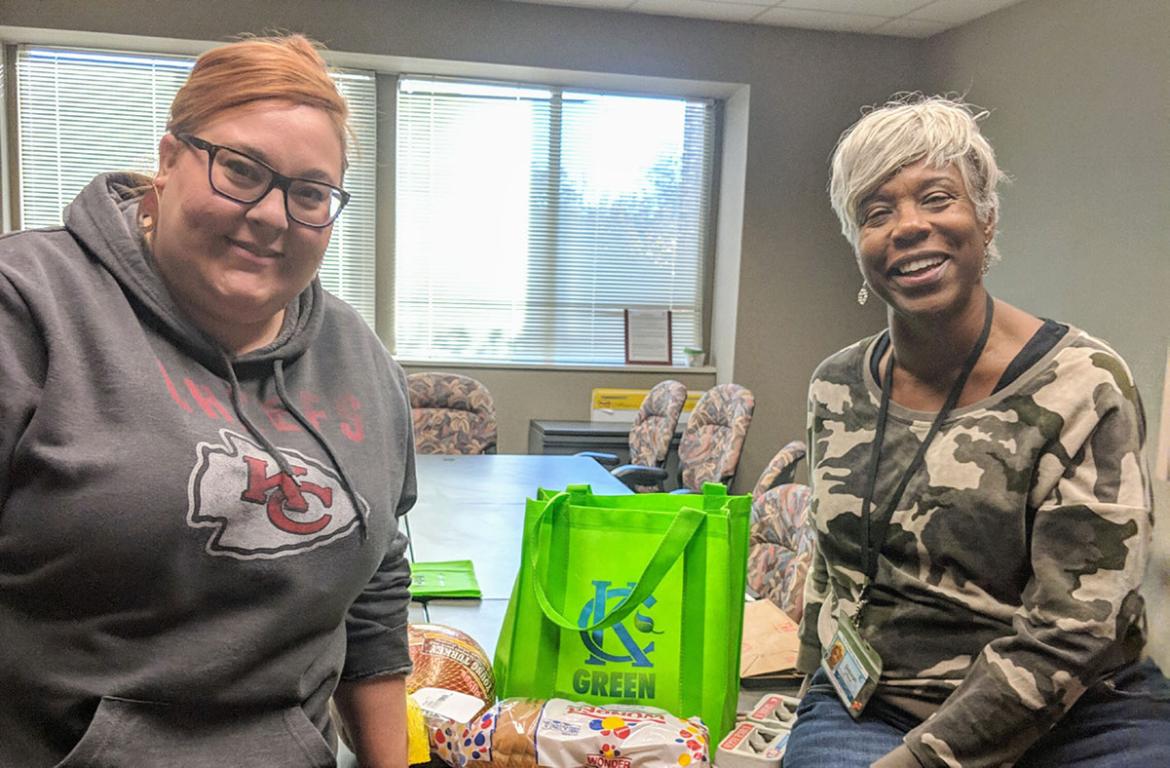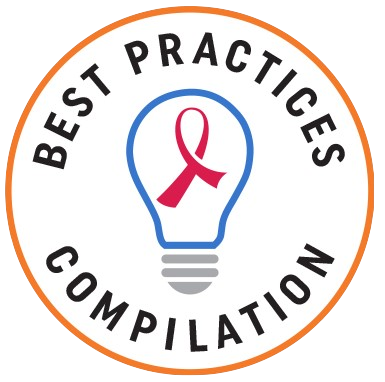KC Life 360 is an initiative to increase employment and housing services for people with HIV by providing direct client navigation and improving system-level coordination. With funding from the Ryan White HIV/AIDS Program (RWHAP) Part F Special Programs of National Significance (SPNS) Improving HIV Health Outcomes through the Coordination of Supportive Employment and Housing Services initiative from 2017–2020, the Kansas City, Missouri Health Department (KCHD) developed KC Life 360 to expand housing and employment opportunities for people with HIV. KCHD partnered with Catholic Charities for employment support and reStart for housing support. Housing stability, employment, and viral suppression improved for clients participating in KC Life 360.
Kansas City, MO
Recognizing the positive relationship between stable housing and outcomes on the HIV care continuum1,2, the RWHAP Part A Planning Council advocated for more funding for safe, affordable, and permanent housing options for people with HIV. KC Life 360 includes employment navigation, housing navigation, and system coordination to increase housing and improve employment for people with HIV experiencing housing instability and unemployment.
Case managers and peers at RWHAP Part A subrecipients identified individuals potentially eligible for the program and referred them to a KCHD housing specialist for a formal assessment. Clients were eligible for the intervention if they had a new diagnosis of HIV; were not engaged in care or not virally suppressed; were unstably housed; and wanted a job or to sharpen their skills. Many individuals learned of the program through word-of-mouth and were self-referred. The housing specialist then referred clients to Catholic Charities for employment support and reStart for housing support.
Catholic Charities provided individuals with skills to improve employment opportunities through resume writing, mock interviews, and communication tips. In addition, the organization connected individuals to potential employers and provided ongoing coaching services once employment was secured.
reStart focused on transitional housing for people who were homeless. The organization connected clients to available U.S. Department of Housing and Urban Development (HUD) subsidies and housing units that would accept those subsidies, and provided support to promote successful transitions and independence. KC Life 360 also offered hotel gap lodging using RWHAP SPNS funds to provide housing for 30–60 days while more permanent options were found.
All organizations and staff that participated in KC Life 360 worked closely with case managers to meet individuals’ needs outside of housing and employment, such as medical care, oral health care, and transportation. In addition, KC Life 360 implemented an innovative approach to reduce transportation barriers; the program distributed dozens of bikes donated by a local business to program participants to help them get to appointments and employment.
Eighty-seven people from the Kansas City metropolitan area enrolled in the one-year intervention. All participants were not stably housed, not fully employed, and not fully engaged in HIV medical care at the time of recruitment. Housing stability, employment, and viral suppression all improved for participants after 12 months.
| Category | Information |
|---|---|
| Evaluation data |
|
| Measures |
|
| Results |
* statistically significant |
Source: Lightner JS, Barnhart T, Shank J, et al. Outcomes of the KC life 360 intervention: Improving employment and housing for persons living with HIV. PLoS One. 2022;17(9):e0274923.
“We started to have that conversation about how do we transform our housing programs so that we're not warehousing people, but we're really actually looking at how we move them along that continuum of care? Then [we started] to put the pieces in place that were needed to build that. KC Life 360 represented the culmination of that [work].”
Community Partnerships. KCHD contracted with a housing agency, which was a already a subrecipient through Housing Opportunities for People with AIDS (HOPWA) and RWHAP Part A, and a new partner, Catholic Charities, for employment services. Despite lack of RWHAP experience, Catholic Charities quickly integrated with KC Life 360 given the alignment of its mission with the program and positive reputation in the community. The participating agencies met on a biweekly basis to discuss process, improve coordination, and share client experiences.
Access to data. KCHD added participating agencies to the KCHD data management system, SCOUT, which is also used by the Missouri and Kansas Part B programs, to give them access to clients’ medical and support service information. KCHD recognized that giving housing and employment specialists access to the “comprehensive chart of a client” helped them better meet client needs and coordinate with other providers.
Transitional housing placements. reStart leased a 22-unit building for transitional housing placements as allowable by Policy Clarification Notice #16-02 Ryan White HIV/AIDS Program Services: Eligible Individuals & Allowable Use of Funds (PCN 16-02). This leasing process took almost two years to finalize. The leasing costs of the building were covered by HOPWA and RWHAP Part A, and KC Life 360 funds supported clients through case management related to housing and employment.
Employment training. Catholic Charities modified a pre-existing employment training curriculum to better serve people with HIV by adding components related to disclosure and health.

Debbie and Jessica coordinate to provide clients many resources in addition to bikes, such as holiday meals.
- KCHD put sustainability mechanisms in place to fund the strategy once the RWHAP SPNS initiative ended.
- The agency relies on steady HUD funding for housing placements. In addition, KCHD hired the SPNS housing specialist as a full-time employee by reworking the use of HOPWA formula funds.
- In addition, the participating housing and employment agencies have other funding streams to continue providing services. For example, individuals can still be referred to Catholic Charities for employment support after the SPNS program ended.
“Outside of formal sub-recipient contractual relationships, the key was to keep that kind of referral network and those wraparound services in the network.”
- With three different agencies providing services, referrals and coordination needed to be seamless to keep clients engaged. Therefore, staff often moved from location to location to serve clients instead of asking clients to travel. For example, if clients had an employment training at Catholic Charities, the housing specialists might meet them there to discuss housing issues. This co-location of services ensured that specialized staff and agencies provided housing and employment supports without requiring clients to move locations.
- Similarly, staff met clients in community locations, such as the library or food establishments, to reduce transportation barriers and better serve them.
- Catholic Charities identified job opportunities near bus stops, provided reimbursement for transportation costs, and distributed bikes to remove transportation-related employment barriers.
- KC Life 360 was able to secure HUD subsidies, but finding apartments to take those subsidies posed another challenge. The availability of one-bedroom apartments near public transportation is low in the Kansas City area. To address this issue, KCHD and reStart undertook a two-year initiative to sign a master lease with a 22-unit building. HOPWA covered leasing costs, and RWHAP Part A and KC Life 360 covered the costs of housing supportive services.
Implementation Resources
- KC Life 360 IHIP Implementation Guide and Fact Sheet
- The Bike Exchange
- Policy Clarification Notice #16-02 Ryan White HIV/AIDS Program Services: Eligible Individuals & Allowable Uses of Funds
- KC Life SPNS Demonstration Project Page, including Intervention Manual and replication materials
Presentations
- Aidala A, Wilson MG, Shubert V, Gogolishvili D, Globerman J, Rueda S, et al. Housing status, medical care, and health outcomes among people living with HIV/AIDS: a systematic review. Am J Public Health. 106(1) 2016 Jan.
- Maulsby CH, Ratnayake A, Hesson D, Mugavero MJ, Latkin CA. A scoping review of employment and HIV. AIDS Behav. 2020 Oct 1; 24(10):2942–55. doi.org/10.1007/s10461-020-02845-x

